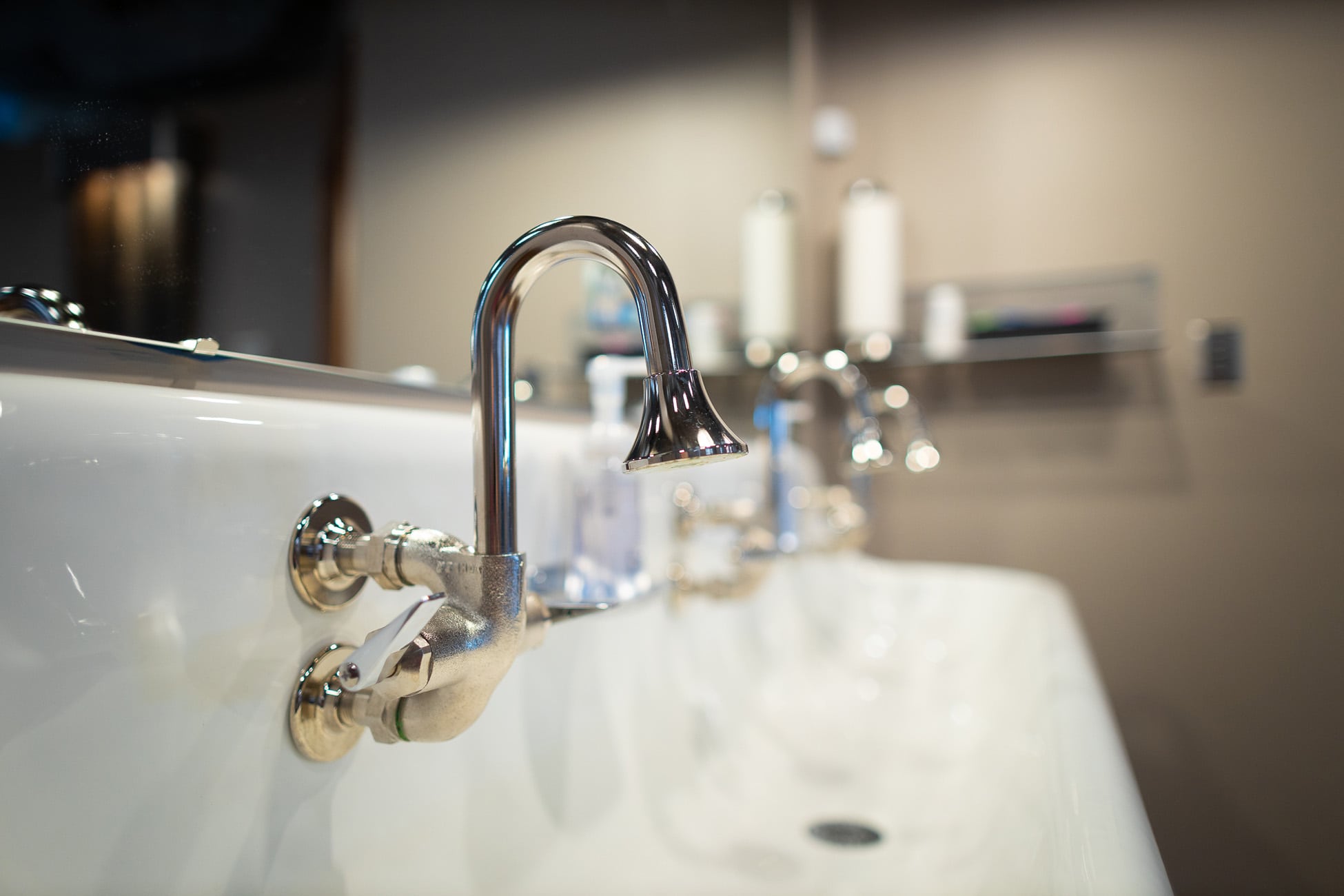Flossing can be more challenging with braces than without braces. How do you get your dental floss around those wires and brackets? Wilson and Hendrickson Orthodontics recommends floss threaders to get dental floss around wires, but some have opted for water flossers such as a Waterpik.
Is a Waterpik better than flossing? Does Waterpik replace flossing? You can get a lot out of water flossers, but they may not do as well as you think. Let’s look at which wins the battle of water flosser vs. dental floss.

What is a Water Flosser?
A water flosser shoots a tiny, powerful stream of water between your teeth. There are several brands and types of water flossers, but people often refer to them as Waterpik, a top brand name.
How does a water flosser work? The water flosser, technically called an oral pulsating irrigator, is used to loosen and remove plaque and particles between teeth. The force of the stream of water pushes the plaque and particles out from between the teeth. You can then brush your teeth and brush away all that plaque and food particles.
Does water flossing work? Yes, to an extent. There are benefits to using a water flosser compared to dental floss, but more than those benefits may be needed.

Water Flosser vs. Dental Floss
While the water flosser has some advantages, it shouldn’t replace actual dental floss. That’s because water flossers just don’t have the scrubbing power of dental floss.
The movement and friction of the dental floss against the tooth scrub the plaque completely off the tooth. The water flosser will rinse off some plaque, but it usually leaves a thin film on the tooth’s surface.
Dental floss has other advantages. It’s in a small container and very portable. It’s inexpensive. It doesn’t require recharging or batteries, and it even comes in different flavors.
Using dental floss with braces can be more challenging, but floss threaders make it much easier.
Floss threaders look like giant needles but are made of very thin plastic. You simply thread the floss through the “eye of the needle” and use the floss threader to go under your archwire and through your teeth.
Other types of floss threaders simply look like a long piece of dental floss with plastic on one end. You thread the plastic around your wires and through your teeth, pulling the dental floss through. Both options make flossing with braces much easier.
The bottom line is that when it comes to water flossers vs. string floss, the latter is still necessary for good oral hygiene, but a water flosser can help get to areas your toothbrush or dental floss can’t reach. It’s an excellent addition to regular flossing and brushing.

Other Water Flosser Benefits
A water flosser does have some good things going for it. Braces patients find several advantages to using a water flosser. Let’s find out whether Waterpiks are better than flossing.
Water flossers remove food particles from teeth and gums. Patients with bleeding gums find the water flosser gentler on their irritated gums. They also help reduce bleeding and reverse gum disease.
Water flossers have shown to be great at removing food from those little pockets between the gums, someplace dental floss doesn’t always reach. These little “periodontal pockets” can get irritated if the food isn’t removed, which could cause bleeding and even infection.
Water flossers have also been shown to reduce plaque on and between the teeth. They work well even with temporary or permanent crowns, fillings, or veneers.
Should you use a water flosser before or after brushing? As with traditional dental floss, you should use a water flosser before brushing your teeth to brush away what comes out.
Water Flossers for Braces
Braces patients can find using dental floss a challenge. It’s not easy weaving the dental floss around those brackets and wires.
A water flosser can make it easier to remove particles between teeth. It can also help remove particles around the brackets and under the wires—places that might be hard to reach with a toothbrush or dental floss.
Water flossers tend to have a pulsing stream and intensity adjustments that allow you to dislodge nearly any food particle from hard-to-reach places.
What’s the best water flosser for braces? Most water flossers will work, but some come with an “orthodontic tip” shaped to get debris out of braces brackets.

Does a Water Flosser Work?
We know what a water flosser is made to do. The big question is, does a water flosser work? Water flossers have been shown to work well at dislodging particles, particularly in hard-to-reach places. It’s also good at rinsing off some plaque from the tooth’s surface.
The bottom line is that it’s a great addition to your oral hygiene tools, which should include a soft-bristled toothbrush and regular dental floss.
How to Use a Water Flosser and Dental Floss
Do you know how to use a water flosser best? What’s the best way to floss between teeth? Here are a few pointers for water flossers and dental floss:
- Use waxed dental floss. It tends to slide better between the teeth and fray less.
- Use a floss stick for better maneuverability. These plastic sticks have a small piece of dental floss strung between two prongs. The small size makes it easier to reach your back teeth rather than trying to get your hand into your mouth!
- Use a floss threader with braces. Floss threaders make it easier to get dental floss under your archwires and around your brackets. You can find floss threaders and major retailers and pharmacies.
- Use a water flosser to remove whatever is left after using regular floss. You can also use the water flosser to reach hard-to-reach places, like around brackets or crowns.
- Floss first! Floss your teeth first, then rinse, then brush your teeth. Flossing first removes the particles and plaque so they can be swept away by rinsing and brushing.

Are Waterpiks Better Than Floss?
Waterpiks and other water flossers are great tools to have when it comes to practicing great oral hygiene. However, they shouldn’t be considered a substitute for actual dental floss. They cannot scrub the surface of your teeth like dental floss can.
Wilson and Hendrickson Orthodontics encourages our patients to maintain good oral hygiene. We know our patients in the Topeka, KS, and Lawrence, KS, areas want amazing smiles, and we know flossing and good hygiene habits are big keys to those smiles.
While you’re brushing and flossing regularly, we’re working hard to create an amazing smile with braces on Invisalign. If you’re not a patient and would like to be, contact us for a no-obligation evaluation. Together, we can create the smile of your dreams!









